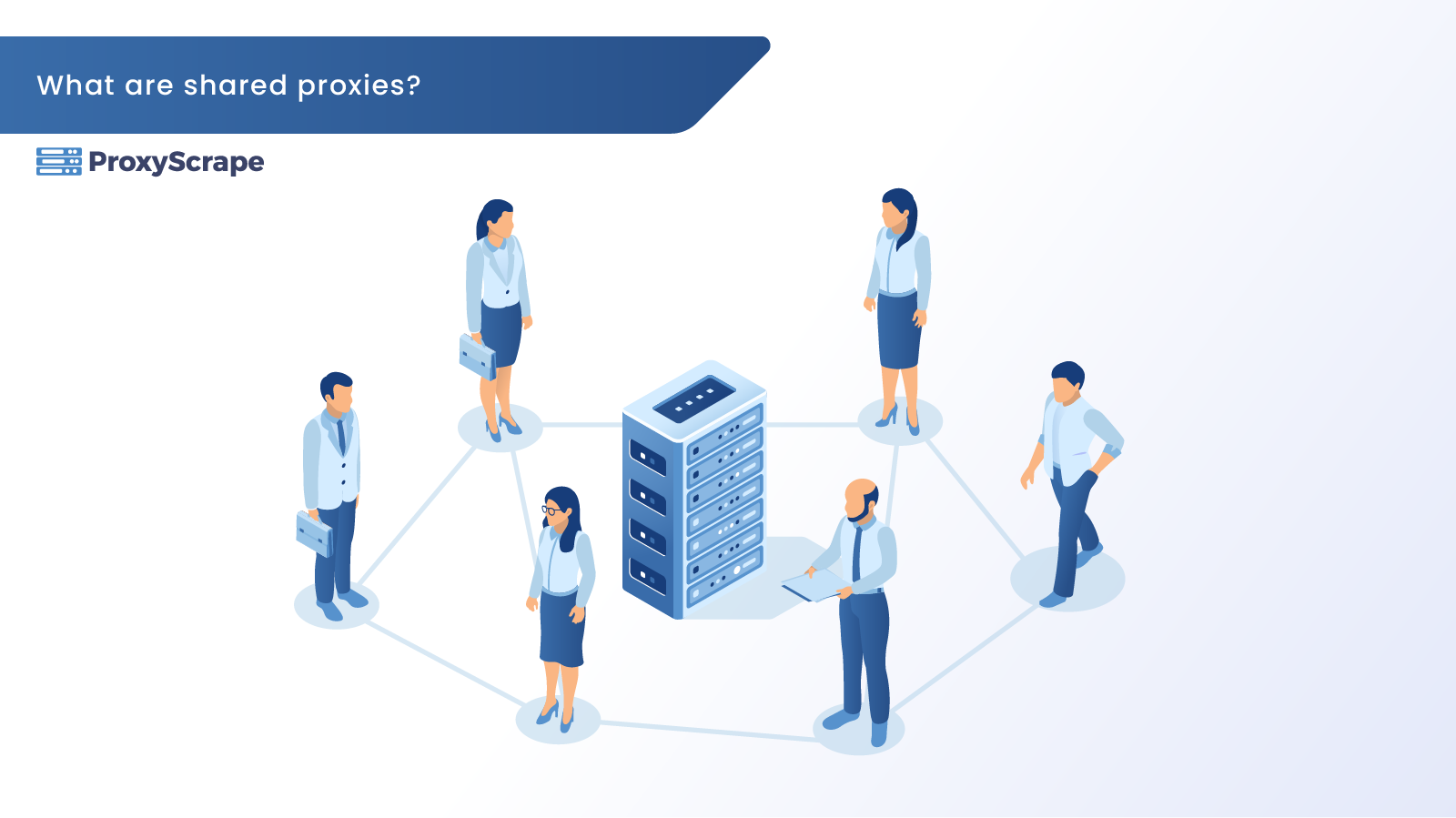What are Shared Proxies?

The use of proxies has become essential for every business as they are required in every area of business, such as marketing and brand promotion. Since there are different proxies available, choosing the right proxy is very important according to the business needs. In this article, we will explore what shared proxies are, what are
The use of proxies has become essential for every business as they are required in every area of business, such as marketing and brand promotion. Since there are different proxies available, choosing the right proxy is very important according to the business needs.
In this article, we will explore what shared proxies are, what are their pros and cons are, and we will also consider the practical use cases for a better understanding of shared proxies.
Using shared proxies is just like taking a bus to work. You arrive at your destination, but you have to share the bus with others. We have considered an analogy to get a brief idea about shared proxies. Let’s see what they really are.
What do Shared Proxies Mean?
Shared proxies are the IP addresses that multiple users can use at the saùe time. They are less sophisticated as compared to private proxies. The most appealing feature about them is their cheap cost.
Your IP address is your identity on the internet. So if you want to surf anonymously or access any content blocked in your area, using a proxy is the best option. The most common users of shared proxies want to hide their identity on the internet, bypass filters, or connect to the internet from different locations.
So if you want to bypass geo-retractation or access content that is not available at your location, the cheapest and a good option is using shared proxies.
Pros of Using Shared Proxies
- Affordable
These are the cheapest proxies one can get. Since the proxy providers have to accommodate many users, it is cheaper to maintain the servers by splitting costs. It is also a very convenient option for beginners who are just entering the world of proxies and trying them out.
- Utilizable With Scraping Tools
These are not the ideal proxies for web scraping, but they work perfectly fine with some tools. They can also be used with bots. As long as the target website doesn’t detect your proxy and block you, you are good to go.
- Good Anonymity
In the case of shared proxies, many users are using the same IP address, so it’s difficult to identify and target a single IP user.
- Shared Proxies are Efficient
Shared proxies’ efficiency might differ from case to case, but they are very efficient for simpler tasks (basically what they are meant for). If bought from a reputable service provider, shared proxies have an excellent performance. Good proxy providers are constantly working to optimize the efficiency of the shared proxies so they might fit according to the needs of each user.
Cons of Shared Proxies
With a lot of pros, there might be some factors that one should keep in mind before using shared proxies,
- Shared Bandwidth
The dedicated proxies have their own bandwidth for faster speeds and greater performance. But in the case of shared proxies, you have to share the speed and resources with other users that might affect your proxy’s performance.
- Bad Neighbor Effect
Since the IP address is shared among multiple users, you may get banned from the websites for the acts someone else has done, which is against the ethics of that site.
- Reliability
These proxies are not the most reliable since multiple users are accessing them at the same time. So one might suffer from slower speeds and unresponsive IPs.
- Encountering Captchas
When multiple users access a site using the same IP, it seems like a SPAM, resulting in more CAPTCHAS.
Use Case for Shared Proxies
Shared proxies come in many types. Both the datacenter and residential proxies can be shared. We have explained the datacenter vs residential proxies in another article. You may refer to them for more details. In this section, we will only consider the use case in which they both can be useful if they are shared.
Let’s suppose you want to access the geo-restricted content or change the IP address; then, datacenter proxies are the best choice.
Now let’s consider another scenario. Suppose you want to withdraw and gather data from the internet, test the performance of your service or interface, perform research, and so on, then residential proxies are the best. They will make you appear as a resident of a specific country and the destination server will be unable to detect that you are using proxies.
Final Thoughts
In this article, we have seen what shared proxies are, their pros, cons and we have also seen a practical use case using a datacenter and shared residential proxies. To sum up, shared proxies are considered the best choice for individuals and companies for filtering and unblocking content by browsing anonymously. One of the most significant advantages is that they are the most affordable types of proxies that can help you perform your tasks easily by providing a considerable amount of security.
That was all. I hope this article was useful and informative. Looking forward to seeing you in the upcoming articles.
If you are looking for proxy services, don’t forget to look at ProxyScrape residential and premium proxies.